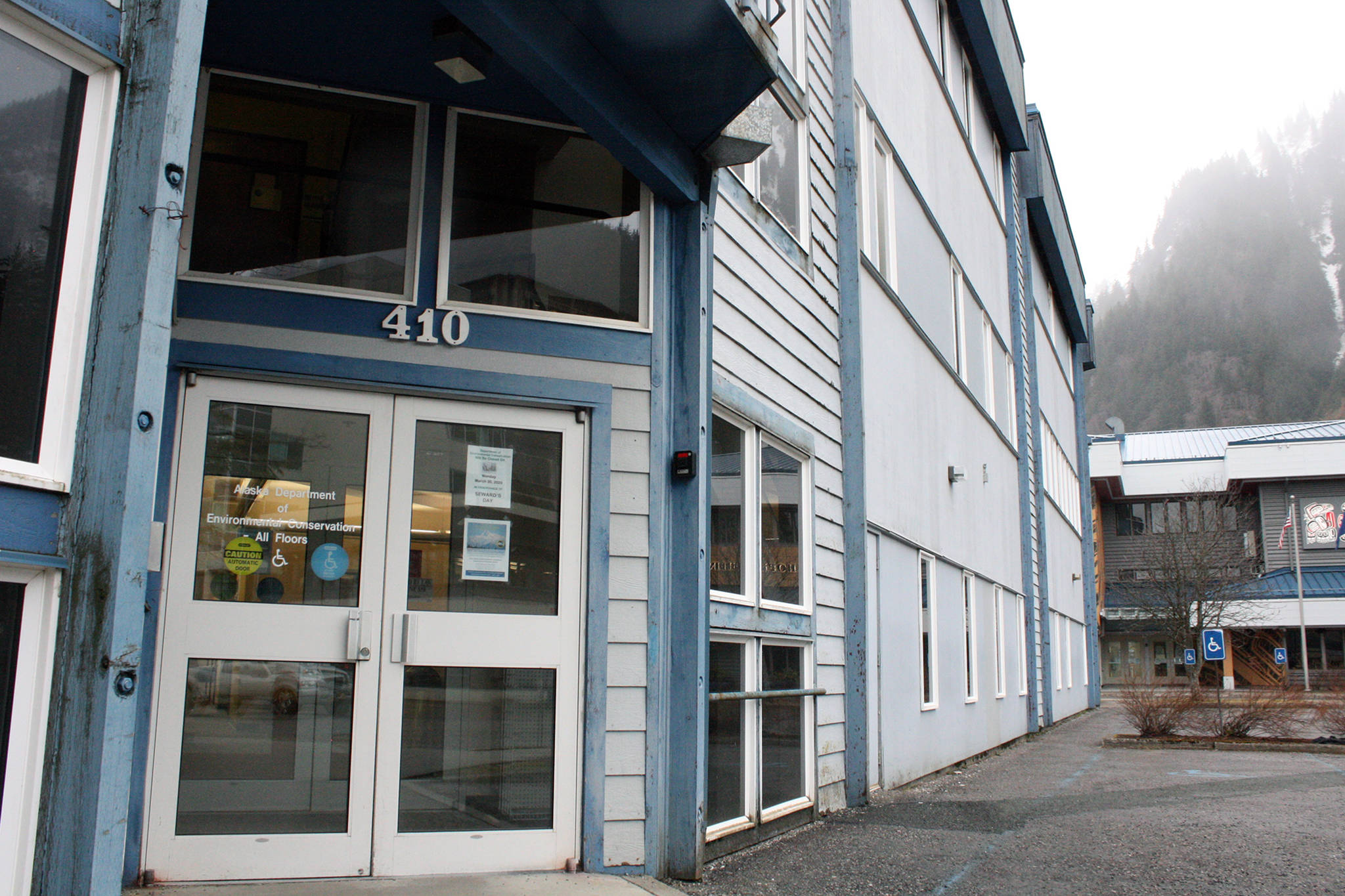A previous version of this article incorrectly stated Commissioner Brune was working in the Juneau office. Public Information Officer for the Division of Homeland Security and Emergency Management Jeremy Zidek had told the Empire Brune was in Juneau but later confirmed the commissioner was working from Anchorage. The article has been updated to reflect this change.
A patient, who tested positive for the coronavirus, had contact with the first floor of a state office building in Juneau, according to an email sent from Department of Environmental Conservation Commissioner Jason Brune all DEC employees and shared by multiple people with the Empire.
“A known positive case of COVID-19 was identified, and this patient had contact on the 1st floor of 410 Willoughby,” Brune wrote in the email. The building at 410 Willoughby Ave. in Juneau houses DEC offices.
Public Information Officer for the Division of Homeland Security and Emergency Management Jeremy Zidek told the Empire the building was “minimally staffed,” and that most state employees had been allowed to telework from home.
Zidek said Commissioner Brune was working from DEC’s Anchorage offices.
Whether people who had contact with the COVID-19-positive person would be tested was a determination for the state epidemiology department to make, Zidek said. Typically, people who haven’t shown symptoms of the virus or are not in high-risk categories were not tested.
Zidek could not confirm if the “affected parties” referenced in the email have been asked to self-quarantine.
“The building will be sanitized and we believe the risk is minimal at this time,” Brune’s email stated. “The state epidemiology team has worked through the contact trace and all affected parties have been reached out to.”
The email mentioned no other state offices.
The first floor of the Willoughby building was not widely used according to Zidek, and most employees work on the second floor.
Zidek provided the Empire with the definition the state is using for close contact:
“Greater than 15 minutes face-to-face contact in any setting with a confirmed case in the period extending from 24 hours before onset of symptoms in the confirmed case, or sharing of a closed space with a confirmed case for a prolonged periode.g. more than 2 hours) in the period extending from 24 hours before onset of symptoms in the confirmed case. “
Close contact includes a person meeting any of the following criteria:
• Living in the same household or household-like setting, such as in a boarding school or hostel.
• Direct contact with the body fluids or laboratory specimens of a case without recommended personal protective gear or failure of PPE.
• Aircraft passengers who were seated in the same row as the person, or in the two rows in front or two rows behind a confirmed COVID-19 case. Contact tracing of people who may have had close contact on long bus or train trips should also be attempted where possible, using similar seating and proximity criteria.
“Contact needs to have occurred within the period extending 24 hours before onset of symptoms in the case until the case is classified as no longer infectious by the treating team,” according to the definition.
• Contact reporter Peter Segall at 523-2228 or psegall@juneauempire.com.
Information on the coronavirus is available from websites for the City and Borough of Juneau, the State of Alaska at coronavirus.alaska.gov and the Centers for Disease Control and Prevention. People with flu-like symptoms are encouraged to contact their health care provider.

